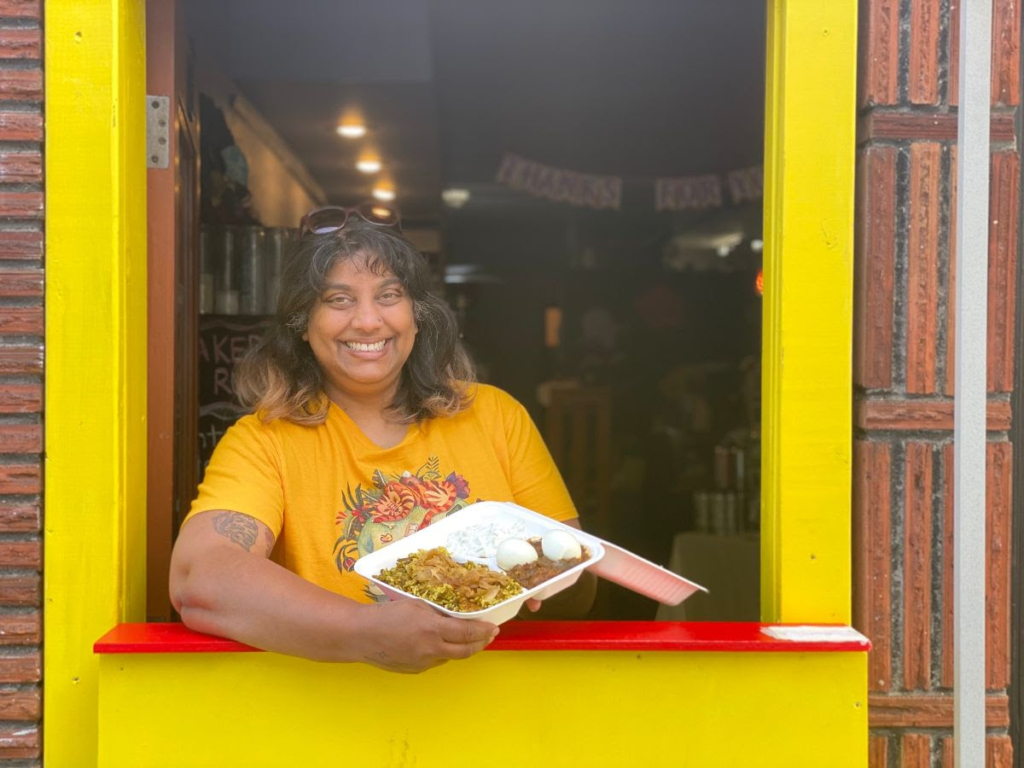
Meet Prashanthi Reddy, the owner of Makeda & Mingus in Seattle’s Greenwood neighborhood. Prashanthi opened her cafe in 2008 and has been a beloved destination and community-first space for excellent coffee, beer, wine, sandwiches, and locally-made baked goods. The shop’s name comes from the Queen of Sheba (Makeda) and Prashanthi’s rat terrier (Mingus).
Pro tip: Stop by Makeda & Mingus on Mondays and Thursday nights as Prashanthi cooks up Indian dishes using family recipes.
Get to know more about Prashanthi and Makeda & Mingus in this week’s Business Spotlight Q&A.
The interview has been edited for length and clarity.
What’s something your customers may not know about you or your business?
Something about me personally is I’ve been to 47 states and I’m still actively trying to hit all 50 states of the U.S. — [I’m missing] Hawaii, Oklahoma, and Maine. And about the business, our business is actually at the original site of Seven Roasters, which is our house roaster. So, I bought the space and [Seven Coffee Roasters] moved to a bigger location.
What’s your favorite part about the community your business is in and why?
I always like to say, “A good day is when I don’t have to leave the neighborhood.” I feel like [Greenwood] is so self-sufficient — it has all of the things that we need and it’s very walkable, so the neighborhood itself is super accessible. […] The neighborhood has a lot of people that have a lot of different interests, so it’s easy to find those people and connect with them. [Makeda & Mingus] is definitely a place where people can just pop in to have a conversation and/or I’ve seen people problem solve there. […] If people are looking for someone to inspect their house or they’re looking for a new doctor, people will come in specifically to chat with their neighbors to help them find solutions to what they’re looking for. Makeda & Mingus is a place where people come to have those casual conversations but also to find answers to things they’re looking for.
What does it mean to you to have been a part of your community for so long and be a part of its growth?
I feel just as supported by the community as I feel like I support the community as well, so it feels very equal. In some ways it doesn’t feel very poignant, but it also feels very comfortable and normalized to be able to not just support the neighborhood but also be supported by the neighborhood.
